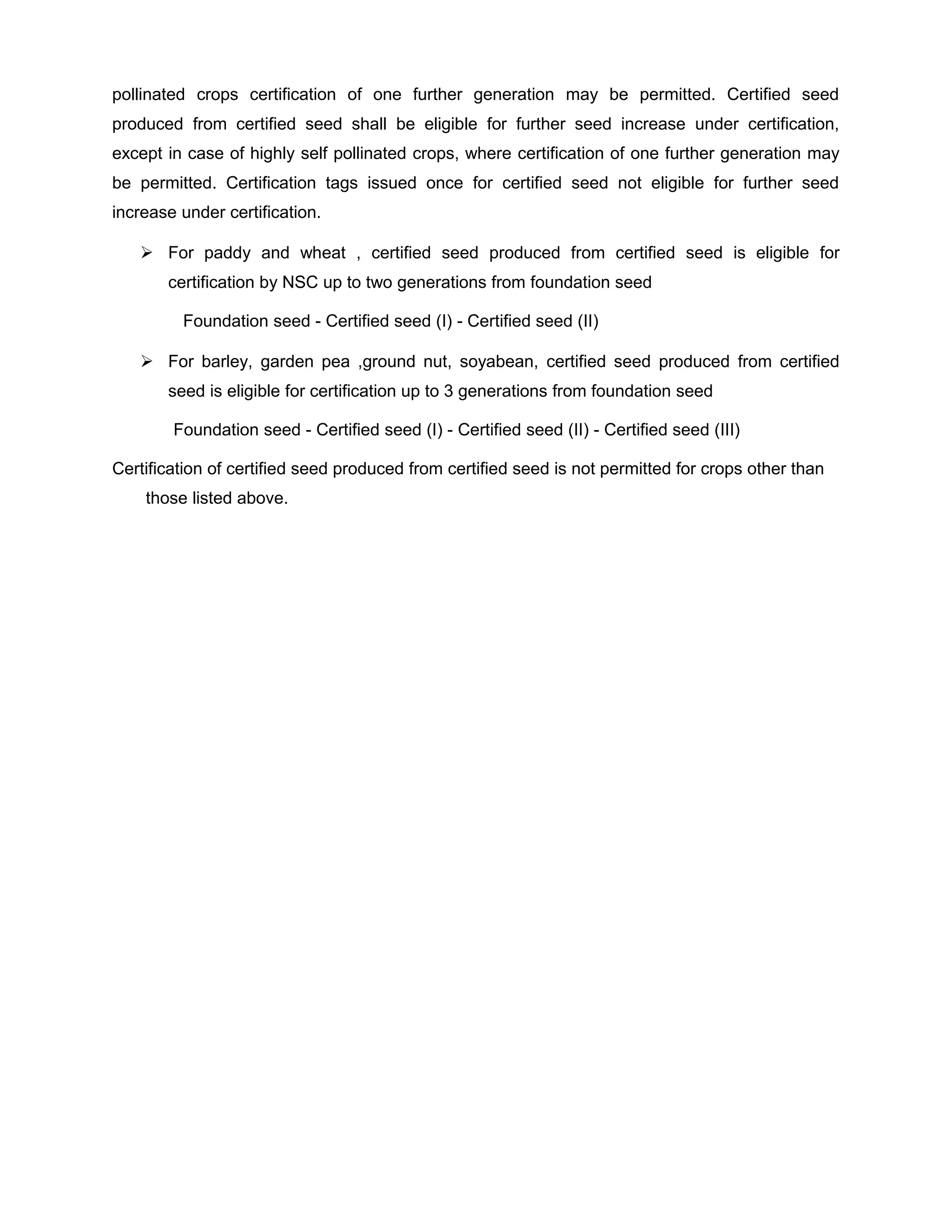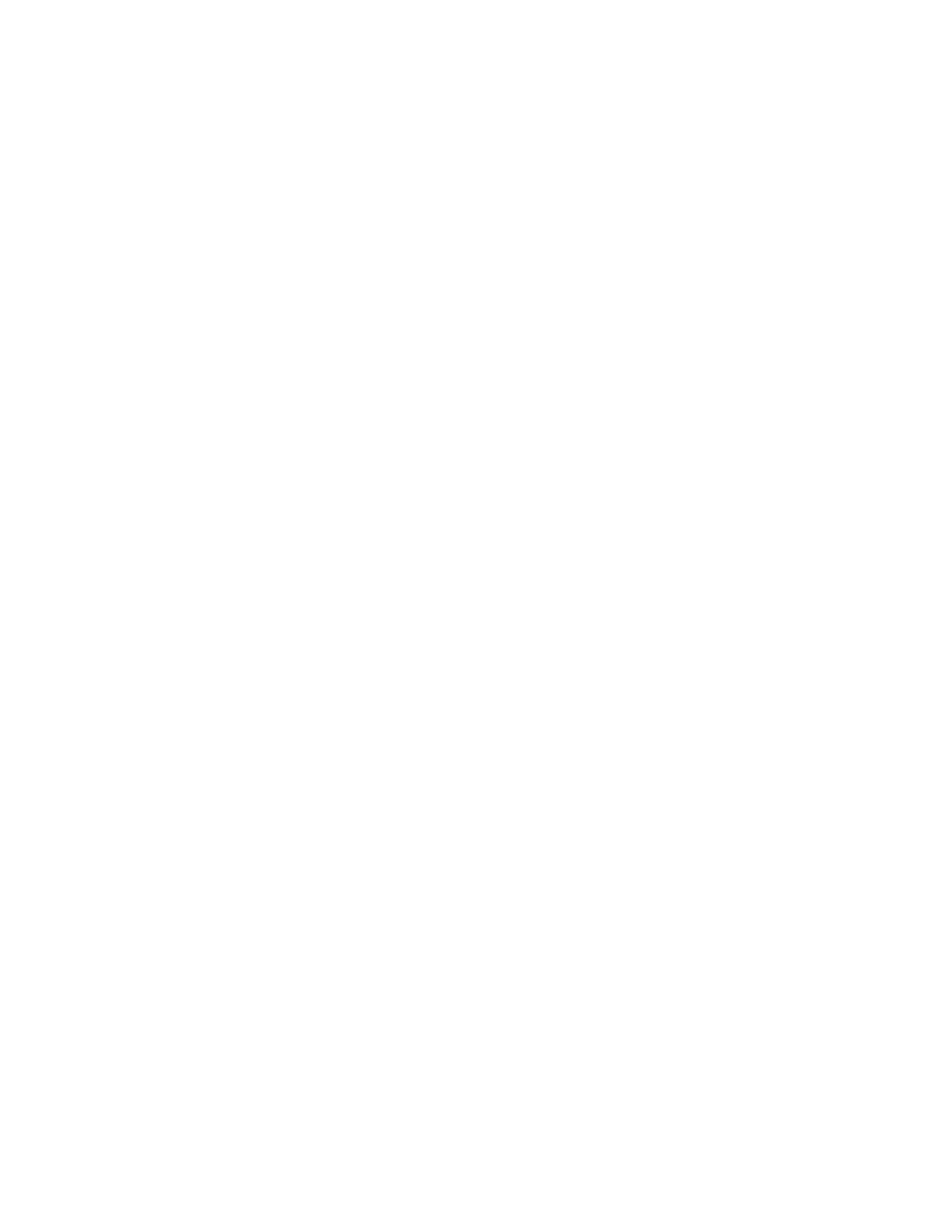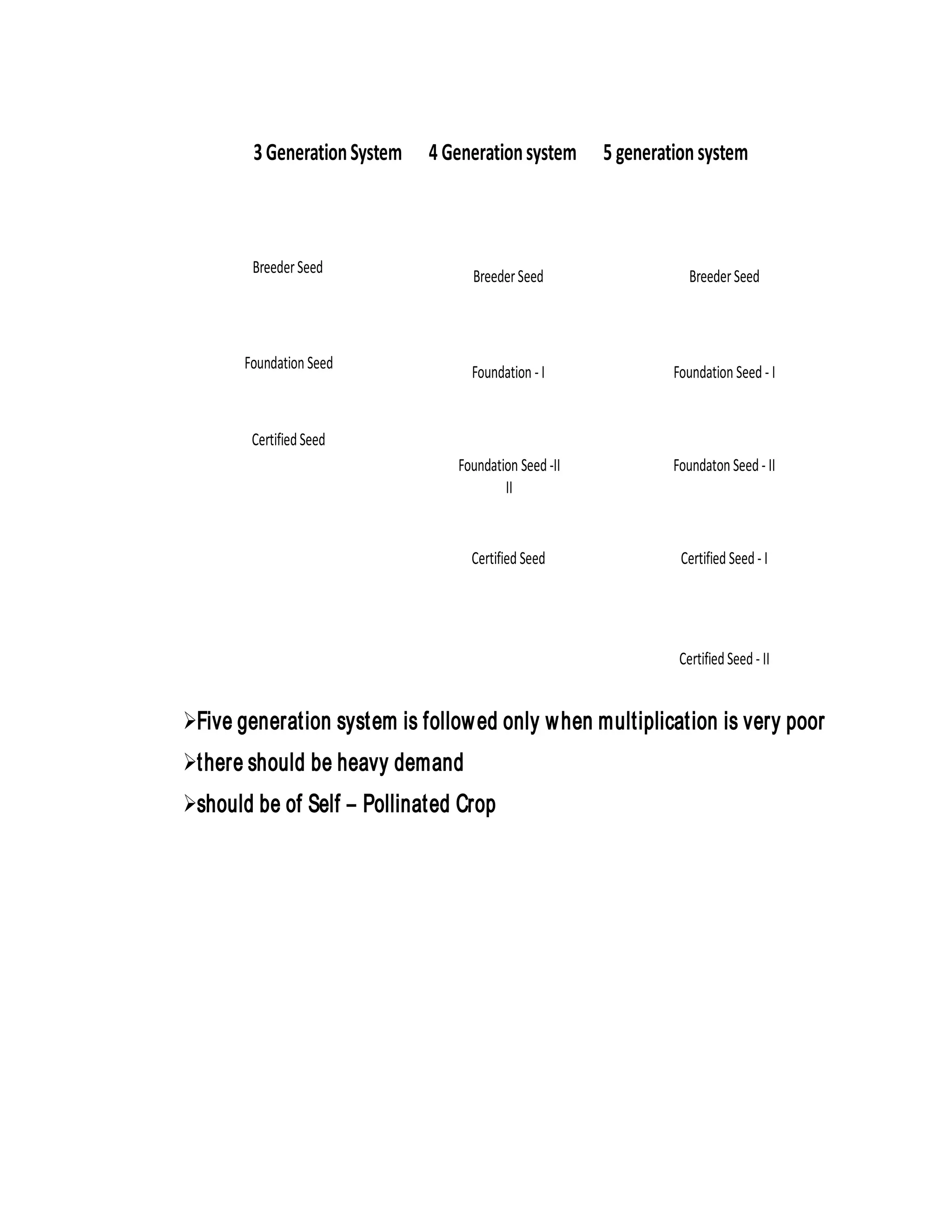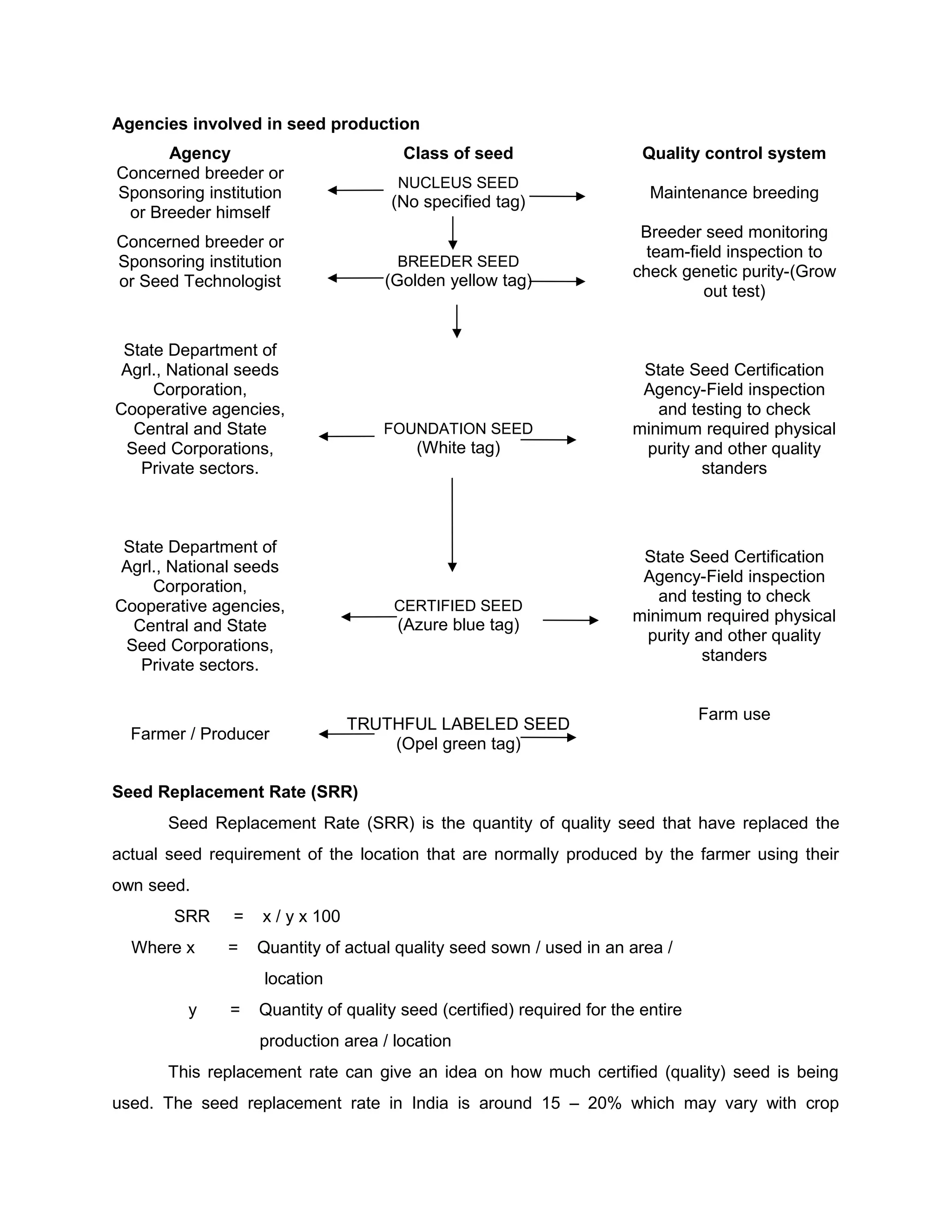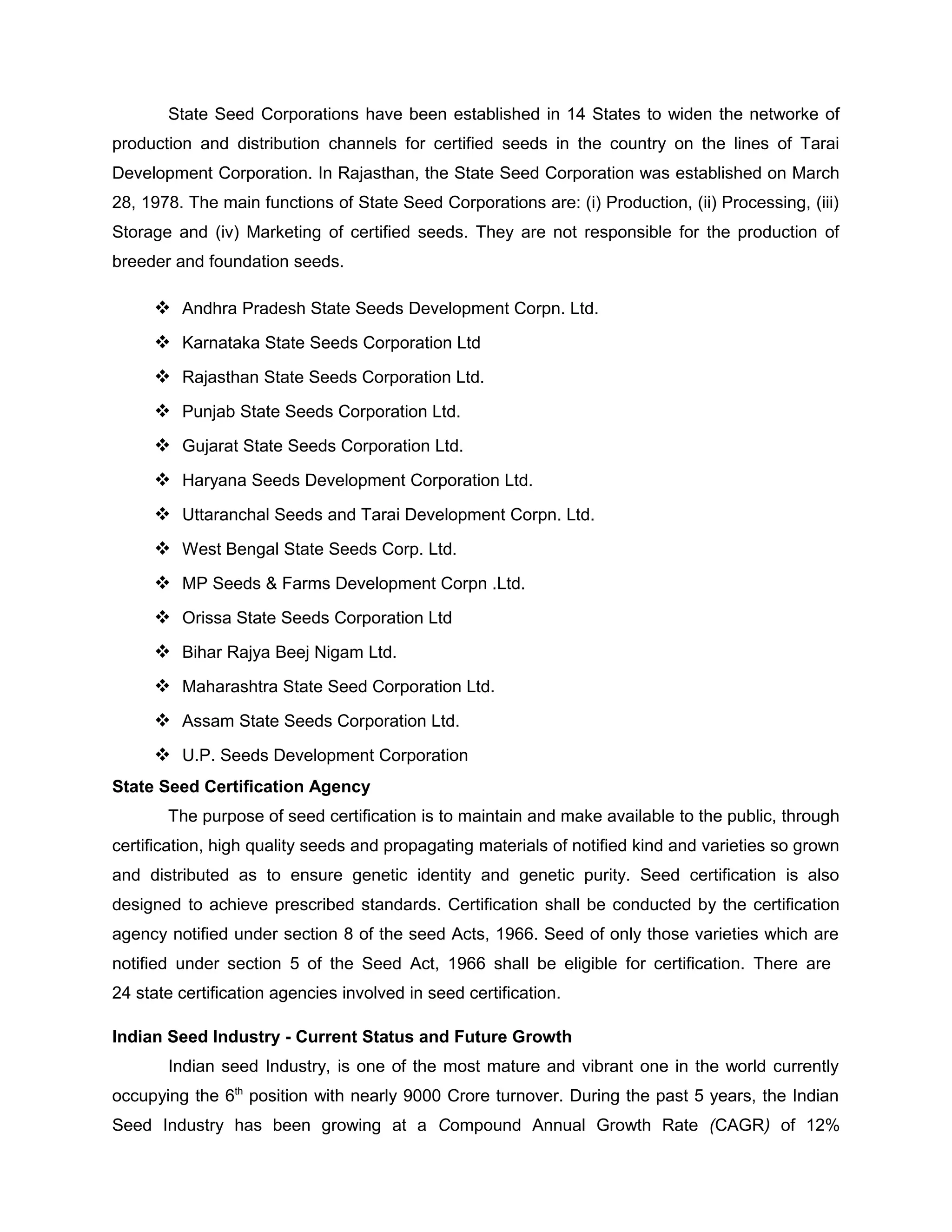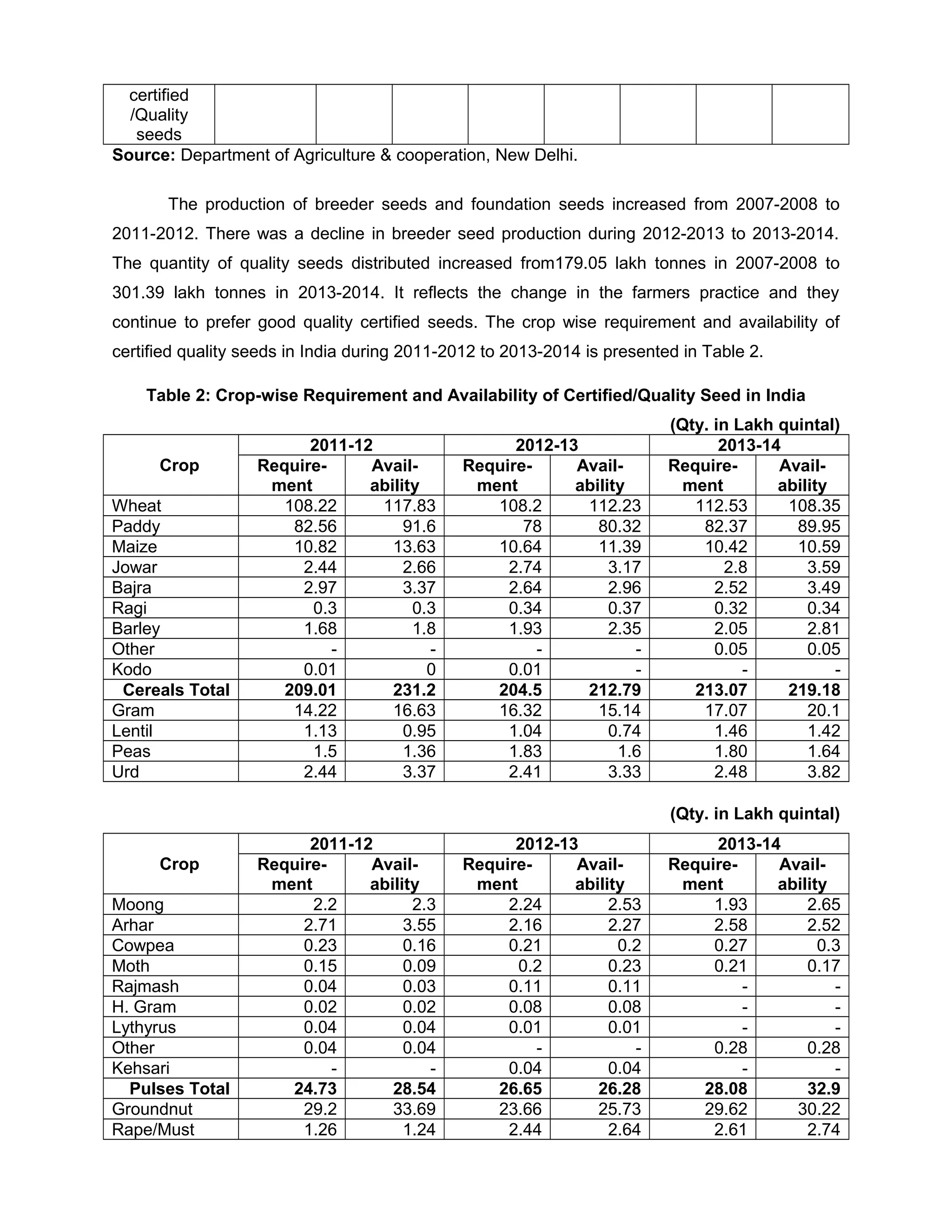This document discusses seed quality, production, and distribution in India. It outlines three key points:
1) Seed quality is paramount for high crop yields, and good quality seed is defined by several genetic and physical characteristics.
2) India follows a generation system for seed multiplication, typically using 3-4 generations (Breeder Seed to Foundation Seed to Certified Seed) to balance genetic purity and supply.
3) Several agencies are involved in producing and quality controlling different classes of seeds (Nucleus, Breeder, Foundation, Certified) according to defined standards.




